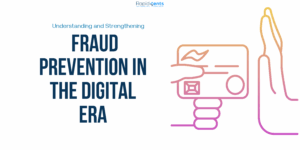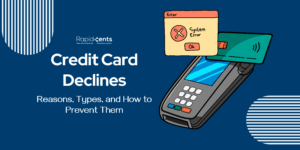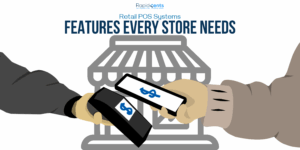When it comes to payment gateways, misinformation often discourages businesses from adopting solutions that could streamline transactions and protect sensitive data. Let’s break down the most common myths and uncover the truth.
Myth 1: Payment gateways are only for large businesses
Payment gateways can be used by any business that accepts payments. In fact, in the present day, having a payment gateway is more essential for businesses to safeguard their finances and grow rapidly.
With the evolution of technology and service providers, payment gateways are scalable and accessible for businesses of all sizes.
Here’s how enterprises of all sizes benefit:
- Scalability: From a handful of transactions to massive daily sales, a good gateway adapts to every business.
- Cost-effectiveness: Adjustable and custom pricing models allow businesses to choose the best features without exceeding budgets.
- Security: Every business must protect sensitive customer information and reduce fraud to safeguard the business and its reputation.
- Customer reach: Safe online payments allow even small businesses to reach customers globally.
Myth 2: Gateway processing is complicated to implement
Another common misunderstanding is that implementing a gateway is overly complex.
In truth, modern gateway solutions are engineered for usability. Integration is straightforward, with detailed documentation, real-time support, and intuitive dashboards that make setup and management easy.
Businesses can even customize interfaces to match their brand and workflows, proving that gateways are not daunting; they’re practical and accessible for all technical skill levels.
Myth 3: Payment gateways are suited for online retailers
While online retailers heavily use gateway services, the scope of payment solutions extends far beyond e-commerce.
Who else benefits?
- Brick-and-mortar stores: POS systems integrated with gateways streamline payments and security.
- Healthcare & education: Online bookings, fee collection, and donations.
- Subscription businesses: Automated recurring charges and membership management.
- Hospitality: Hotels and restaurants use gateways for bookings, deposits, and payments.
- Nonprofits: Streamlined online donations and fundraising campaigns.
Payment Gateways support a wide range of industries, making it a flexible tool for any business handling payments.
Myth 4: Payment gateways only focus on payment processing
Gateways do more than just move money. While completing transactions is the primary goal, they also offer a comprehensive suite of solutions to help your business generate and protect your revenue.
Modern features include:
- Advanced security with encryption and authentication.
- Fraud prevention powered by machine learning.
- Analytics and insights for customer behavior and sales trends.
- Regulatory compliance across industries.
- Tokenization to minimize risks.
- Recurring billing and seamless integrations with business software.
Payment gateways are not just processors; they’re full-scale financial infrastructure.
Myth 5: All payment gateways are the same
All payment gateways are not the same. While the base offerings might sound the same, their expertise and comprehensive features can be very different. While one might offer fraud protection, another might focus on payments specifically for lawyers. Payment gateways vary significantly in their offerings and focus.
Some other differences include:
- Supported payment types & currencies (local, global, digital wallets).
- Scalability to handle future growth.
- Security tools such as tokenization or AI fraud prevention.
- Integration options with e-commerce platforms, POS, or accounting systems.
- Pricing models that vary from per-transaction fees to flat-rate subscriptions.
Choosing the right gateway means evaluating these factors to ensure long-term fit.
Myth 6: Payment gateway services are not secure
Security concerns often hold businesses back, but gateways are built with protection in mind. Every payment gateway focuses on protecting customer data and client information.
Key security measures include:
- Encryption and SSL to keep data private.
- PCI DSS compliance to maintain industry standards.
- Tokenization to replace sensitive card data with unique identifiers.
- Two-factor authentication for stronger account access.
- Continuous monitoring and AI-based fraud detection.
Modern gateways are proactive, not reactive, when it comes to security.
Myth 7: Payment Gateways are only relevant for domestic transactions
In today’s global economy, cross-border transactions are more important than ever.
Payment gateways help businesses expand internationally and find customers beyond borders by:
- Supporting multiple currencies with built-in conversion.
- Accepting region-specific payment methods.
- Ensuring compliance with international regulations.
- Delivering a smooth checkout experience for global customers.
Payment gateways unlock worldwide growth opportunities, even for businesses that start local.
Conclusion
In an era where seamless and secure payment processing is essential, dispelling misconceptions about payment gateways empowers businesses to make informed decisions, remain competitive, and embrace the full potential of these solutions.
Ready to simplify how you get paid and put the myths to rest? RapidCents makes payments secure, flexible, and easy for businesses of all sizes.




